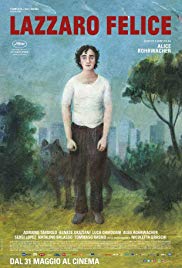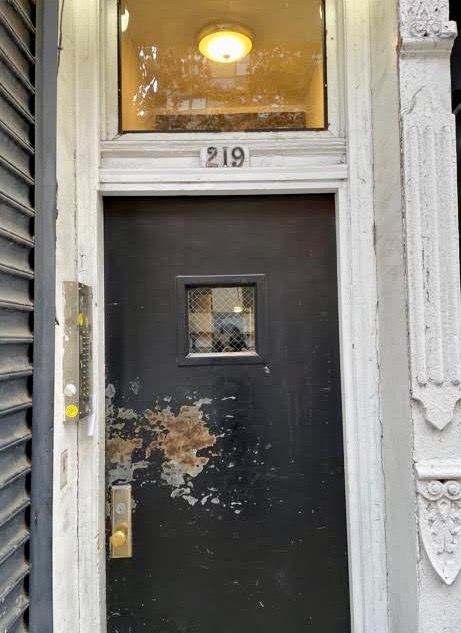
Friday, December 24
On a tobacco plantation in a remote corner of Italy lives a “marquessa,” her layabout son, an estate manager, and fifty or so “sharecroppers” who do all the work, unpaid. It is what might be thought of as a paternalistic, pre-capitalist setup—i.e., slavery.
Among the workers at “Inviolata” is Lazzaro, a perhaps simpleminded, ever-agreeable youth who labors tirelessly. Lazzaro becomes friends of a sort with the layabout Tancredi and introduces him to his primitive mountain hideaway, from which Tancredi sends word to his mom that he has been kidnapped and is in need of ransom.
Thus begins the Italian film Happy as Lazzaro, or Lazzaro Felice, directed by Alice Rohrwacher and now showing on Netflix.
The marquessa, Alfonsina De Luna, is wise to her son’s schemes, but the estate manager’s daughter is taken in—and uses her cellphone to telephone the authorities. When the police arrive, they announce that sharecropping has been outlawed for years! They disband the plantation, arrest the owner, round up the workers, and transport them in a truck to a nearby city.
The whole thing becomes fodder for a tabloid scandal—“The Great Swindle” perpetrated by the woman who becomes known as “the queen of cigarettes.” The newspapers announce that the former slaves have been relocated to more suitable accommodations. In fact, they are just set adrift to become homeless beggars and petty thieves.
Is the filmmaker a Marxist? Her fable seems to echo the ideas of Karl Marx and Frederick Engels, as the capitalist police have “pitilessly torn asunder the motley feudal ties that bound [the sharecroppers to their] ‘natural superiors,’ and has left remaining no other nexus between man and man than naked self- interest.” The former rural proletarians now live atomized lives lacking all sentimental illusions, amid pitiless urban blight.
No one seems to notice that Lazzaro has been left behind. During the police roundup, he plunges off a cliff. But magically, he doesn’t die; seemingly years later, he awakens and wanders on his own into the city, where he finds not only a group of his former worker-comrades (now living in a large, empty propane tank) but also Tancredi.
Late in the movie, Lazzaro goes into a bank to demand that the De Luna fortune be returned to the family. He has heard that bankers took away their wealth. The bank’s workaday patrons, ignorant of Lazzaro’s history and having internalized capitalist logic, fear that—armed as he is with a primitive slingshot—he may take away their money! They set upon him and kill him. Thus is order restored.
Lazzaro Felice was among the 2018 Palme d’Or competitors at that year’s Cannes Film Festival. But despite its light touch, the satire doesn’t really leave the viewer as Happy as Lazzaro: Its view of life without sentimental illusions is as harsh as reality.
Dinner: A Christmas Eve feast of roasted turkey breast, couscous, cranberries, and a pear clafoutis.
Entertainment: On Mubi, either Kiyoshi Kurosawa’s Wife of a Spy or Jean-Luc Goddard’s Contempt.




